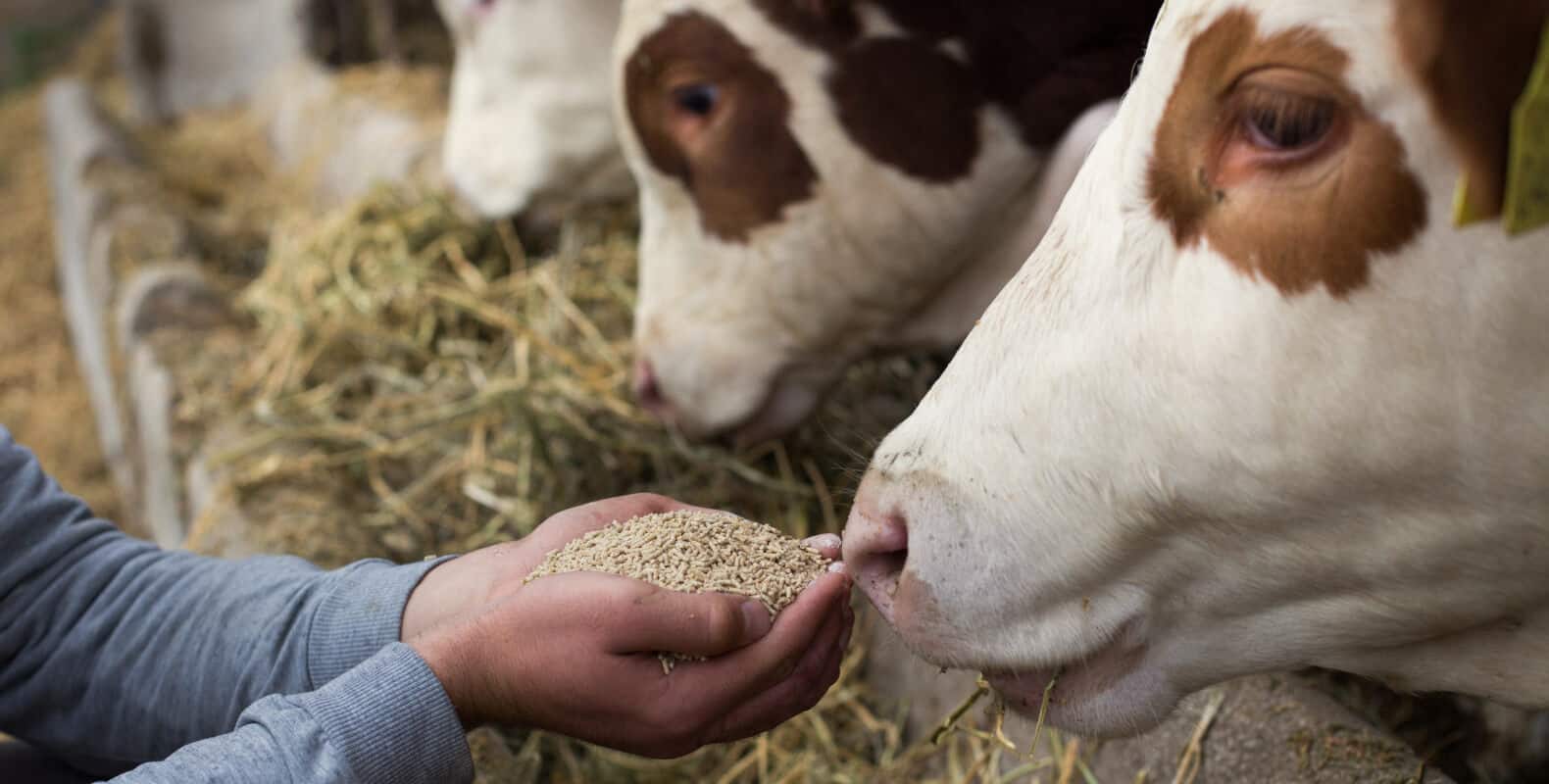How To Improve Livestock Nutrition

One of the most influential industries in the world, without a doubt, is the livestock industry. One of the main goals of this pivotal industry is to ensure economic viability and to supply enough products to meet the needs of rising populations. With that in mind, everyone can agree that one of the most important aspects of any livestock operation is livestock nutrition.
Simply put, there is a direct relationship between the profitability and overall stability of any livestock operation and the health of large groups of animals.
The nutritional requirements of each livestock operation vary with the unique characteristics of the operation. With that in mind, to understand the impact of livestock feed on any given livestock operation, one must review its ingredients. This ultimately helps such operations improve livestock nutrition.
To find out more about how to improve livestock nutrition, read on below.
Livestock Nutrition
In general, livestock nutrition centres around six different food groups, as covered below. Each one of these food groups has a specific purpose when it comes to ensuring the health and weight of livestock as well as the viability of associated products.
Here’s a breakdown of the main food groups when it comes to livestock nutrition:
Vitamins: These are organic nutrients that help maintain various bodily functions, in addition to boosting an animal’s resistance to disease.
Proteins: In addition to being one of the main sources of energy for animals, proteins are also a good source of nitrogen – which meets rumen microorganism needs.
Carbohydrates: These foods normally provide energy to animals. They are made up of a number of elements including oxygen, hydrogen and carbon.
Minerals: In addition to supporting growth and reproduction, minerals also play an important part in keeping livestock healthy. Minerals are inorganic elements.
Water: Needed to meet the hydration requirements of livestock, water is a basic necessity for all animals to thrive and survive.
Fats: Known to increase the energy density in feed portions, fats have a higher ratio of calories per unit of weight than sugars and carbohydrates.
All of the above-described food groups are considered to be important for the health of livestock. However, due to the expensive nature of the storage, distribution, and acquisition of protein-rich feeds, most producers mostly concern themselves with these feeds.
Feed Ingredients And Livestock Nutrition
To improve livestock nutrition, you must have a good understanding of feed ingredients and their role in livestock nutrition. Basically, a combination of feed ingredients and supplements form the basis of livestock nutrition. Animal feed is created using up to 900 different agricultural products. However, there are a few common ingredients that are found in most livestock feeds, including barley, wheat, soybean meal, distiller’s grain, corn and sorghum among others.
When it comes to nutrition, different feed ingredients normally serve different nutritional purposes. For example, while foods like hay only contain fats and carbohydrates, other ingredients like corn contain a whopping six livestock nutrition ingredients!
An animal’s stage of life is just as important as the ingredient variations when it comes to livestock nutrition. To put this into perspective, proteins are more important to younger poultry and bovines in order to promote accelerated growth. In the same breath, huge amounts of high-quality premium fibre must be added to the diet of lactating cows. The productivity and profitability of dairy cows is also affected by the level of fat in the milk they produce due to the type and content of their diet.
All in all, feed ingredients are an important part of livestock nutrition, and understanding them is important when it comes to maintaining the health and productivity of your livestock.
Supplements And Livestock Nutrition
Considered to be part of feed ingredients, supplements are supplied to animals – in addition to feeds – in many farms. These ingredients are found in many forms of feed. Supplements play an important role in boosting the health of animals. Livestock feeds feature a variety of supplements, with the most common ones being:
- Flavours
- Acidifiers
- Concentrated Vitamins and Minerals
- Pellet Binders
- Mould Inhibitors
- Direct Fed Microbials and,
- Toxin Binders, among others
To ensure that livestock consumes all the necessary nutrients over the course of the day or week, these supplements are mixed in with the livestock feed. In most cases, livestock supplements – which assist with various aspects of the nutrition of animals – play an essential role in maintaining good health during the cold season, in addition to promoting healthy reproduction.
Conclusion
From the above, it is clear to see just how important livestock nutrition is to the success of any livestock operation. Understanding the composition and ingredients of livestock feeds plays an important role in helping farms improve livestock nutrition. The overall purpose of livestock and the intended consumer play a vital part in determining the ingredients and mixture of feeds.
For instance, since poultry prefers to consume feeds that have some scratch grain, carbohydrates tend to be a major part of any good chicken feed. On the other hand, to maintain great health, equine herds need to consume a diet with large amounts of barley and hay.
It is also worth noting that livestock nutritional requirements vary from one operation to the next. The requirements of the animals under your care and your operational goals play an important role in determining the nature and type of supplements and feeds you should use.
With the above knowledge in mind and in practice, farms and farmers should be able to improve livestock nutrition for their herds in line with their goals.




